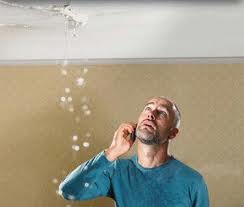Employing experience is invaluable when buying a home & getting building inspection reports, right?
As the years go by, and our company does more and more building inspection reports in NZ, we can safely say we’ve experienced just about type of inspection scenario on site.
Where do you fit in to these common inspection types?
Pre Purchase: This is a critical ‘make or break’ type of inspection that should be as detailed as possible for the buyer. Some structural inspectors will spend 2hrs on site, whilst others will spend up to 5 hrs doing the inspection on the same property. As a home buyer, you have the right to know as much detail as possible about the condition of the home prior to purchasing (the bank would also like know), from foundations to roof… and yes, some inspection companies will provide a completely different report.
Although we get plenty of referrals from real estate agents and banks, make sure you do your own research and don’t be convinced by any agent about which company you should use. In fact, we have heard some agents will tell clients which building inspector not to use because they might loose the sale because of the detailed reports provided! Most agents are non-biased due to tight regulations they need to adhere to, but it’s always safer to go about things your own way.
Pre Sale: Selling your house? Don’t be afraid the inspector will ‘pull your home to pieces’, because any issue they detect will most likely help you complete a sale when it comes time to sell. Most home sellers just want to know there is nothing major wrong with their house, and what steps they should take to tidy the home up in preparation for sale. Usually it comes down to resealing windows, painting external cladding, making sure ground clearances are ok and no leaks are ticking away and concealed behind a wall etc.
Many agents these days will suggest a pre-sale inspection for moisture and structural, just so they can be sure they can sell the home with confidence. Same goes for private sales.
 Leak Inspection After Buying House: Yes… this is the worst type of inspection for us because it generally means the house leaked the first time it rained after they moved into the property. In most cases, it also means they didn’t get an inspection prior to buying the home and are now stuck with a big repair bill. Don’t be one of these people! Thermal imaging is a good way to detect wet insulation and existing leaks.
Leak Inspection After Buying House: Yes… this is the worst type of inspection for us because it generally means the house leaked the first time it rained after they moved into the property. In most cases, it also means they didn’t get an inspection prior to buying the home and are now stuck with a big repair bill. Don’t be one of these people! Thermal imaging is a good way to detect wet insulation and existing leaks.
Buying at Auction: This is the most common type of ‘unknown’ purchase for buyers… when you purchase the home at auction it’s unconditional the moment the hammer comes down on your winning bid. Or, was it really a losing bid? The problem with spending money on inspections before buying, is that you might not win the auction and it’s a waste of money… and what if you have to do it 5 times before eventually winning an auction? That could run into $2500 – $3500+ just for building inspection reports, valuations, lawyers fees etc.
If you run the numbers on the amount of money you could spend on thermal imaging inspections etc, then you will most likely still be way out in front because if you buy a home with just one wet wall, then it still works out the 5 inspections will be cheaper than a potential huge repair bill (New framing, insulation, gib board, plastering and painting… and repairing the water ingress source).
These comments above are based on experience, not just because we provide moisture detection services… it’s the same scenario no matter which house inspection company you use.






